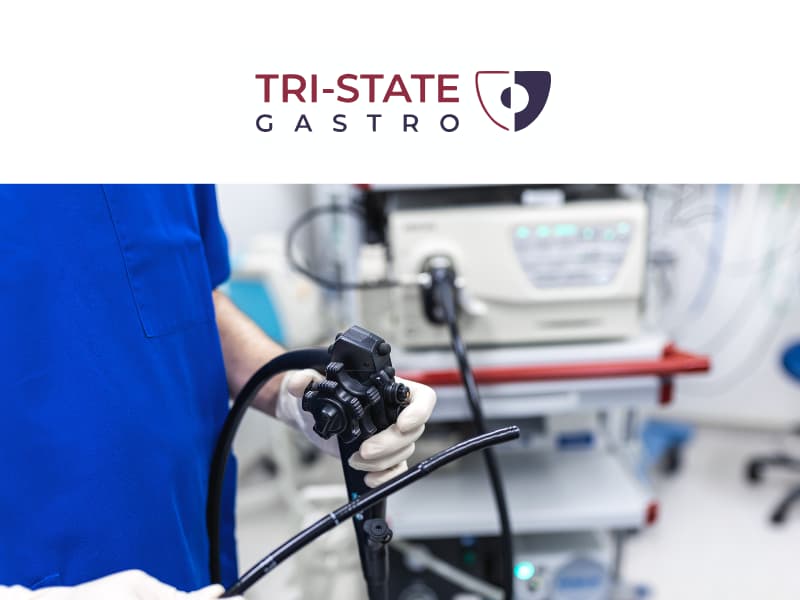Importance of Regular Colonoscopies & What You Need to Know
Colorectal cancer is one of the leading causes of cancer-related deaths in the United States. However, it is also one of the most preventable cancers through early detection and lifestyle changes. Regular colonoscopies play a crucial role in this early detection process. At Tri-State Gastroenterology Associates, we emphasize the importance of routine screenings for maintaining gastrointestinal health. In this blog post, we’ll explore why regular colonoscopies are essential, what to expect during the procedure, and how to prepare for it.
Why Are Regular Colonoscopies Important?
Importance of Regular Colonoscopies & What You Need to Know
1. Early Detection of Colorectal Cancer
Colonoscopy is the gold standard for detecting colorectal cancer at its earliest stages. According to the American Cancer Society, regular screenings can reduce the risk of dying from colorectal cancer by up to 68%. During a colonoscopy, doctors can identify and remove precancerous polyps before they develop into cancer.
2. Identifying Other GI Conditions
In addition to detecting cancer, colonoscopies can reveal other gastrointestinal issues such as inflammatory bowel disease (IBD), diverticulitis, and colorectal polyps. Early intervention can prevent these issues from worsening, ensuring better health outcomes.
3. Age and Risk Factors
The American College of Gastroenterology recommends that average-risk individuals begin screening at age 45. However, those with a family history of colorectal cancer or other risk factors may need to start earlier. Regular screenings allow healthcare providers to monitor individuals at higher risk more closely.
4. Quality of Life Improvements
Detecting and addressing issues early can lead to improved quality of life. Patients who undergo regular colonoscopies can avoid severe complications and enjoy peace of mind regarding their gastrointestinal health.
5. Cost-Effectiveness
While the upfront cost of a colonoscopy may seem high, it is a cost-effective measure in the long run. Early detection and treatment of colorectal issues can save thousands in medical expenses compared to treating advanced diseases.
What to Expect During a Colonoscopy
Importance of Regular Colonoscopies & What You Need to Know
Preparation
Preparing for a colonoscopy involves dietary changes and bowel prep to ensure a clear view of the colon. Patients may be advised to follow a low-fiber diet a few days before the procedure and to consume only clear liquids the day before. It’s essential to follow the preparation instructions provided by your healthcare provider closely.
The Procedure
During the colonoscopy, you will be given a sedative to ensure comfort. A flexible tube with a camera (the colonoscope) will be inserted into the rectum and guided through the colon. The procedure typically lasts about 30 to 60 minutes, and patients can often return home the same day.
Post-Procedure Care
After the procedure, you may experience some bloating or cramping, which is normal. You will need someone to drive you home due to the sedatives used. Follow-up appointments may be scheduled to discuss the results and any necessary next steps.
Frequently Asked Questions (FAQ)
Importance of Regular Colonoscopies & What You Need to Know
1. How often should I have a colonoscopy?
The general recommendation is every 10 years for average-risk individuals starting at age 45. However, those with higher risk factors may need more frequent screenings.
2. Is a colonoscopy painful?
Most patients do not experience pain during the procedure due to sedation. Some mild discomfort or cramping may occur afterward.
3. What are the risks associated with colonoscopy?
While colonoscopy is generally safe, potential risks include bleeding, perforation of the colon, and adverse reactions to sedation. Discuss any concerns with your healthcare provider.
4. Can I eat before my colonoscopy?
Patients are usually required to follow a specific diet and avoid solid foods for a period leading up to the procedure. Clear liquids are typically allowed the day before.
5. What happens if polyps are found during the procedure?
If polyps are detected, they can often be removed during the colonoscopy. The removed tissue will be sent for biopsy to check for cancerous cells.
Conclusion
Importance of Regular Colonoscopies & What You Need to Know
Regular colonoscopies are essential for early detection and prevention of colorectal cancer and other gastrointestinal issues. By understanding the importance of these screenings and what to expect, you can take proactive steps towards maintaining your health.
At Tri-State Gastroenterology Associates, our dedicated team is committed to providing compassionate, high-quality care. If you’re due for a screening or have any questions, don’t hesitate to contact us to schedule your appointment.
Importance of Regular Colonoscopies & What You Need to Know
Importance of Regular Colonoscopies & What You Need to Know
- American Cancer Society – Colorectal Cancer
- American College of Gastroenterology
- CDC – Colorectal Cancer Screening
- NCCN Guidelines for Colorectal Cancer
- National Cancer Institute
- Cleveland Clinic – Colonoscopy
- Johns Hopkins – What to Expect
- Mayo Clinic – Colonoscopy
- WebMD – Colonoscopy
- Healthline – Colonoscopy Preparation
Regular screenings are vital for your health. Schedule your colonoscopy today and take charge of your gastrointestinal health!
Importance of Regular Colonoscopies & What You Need to Know
